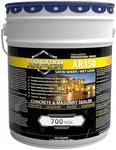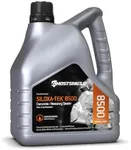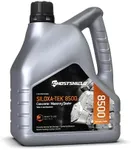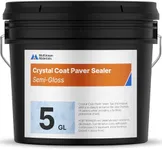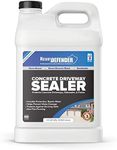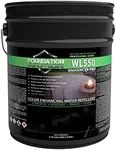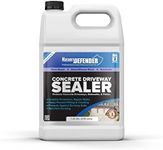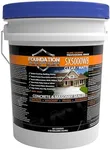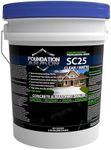Buying Guide for the Best Penetrating Concrete Sealers
Choosing the right penetrating concrete sealer is crucial for protecting and enhancing the durability of your concrete surfaces. Penetrating sealers work by soaking into the concrete and forming a protective barrier that helps to prevent water, chemicals, and other contaminants from causing damage. To select the best sealer for your needs, you should consider several key specifications and understand how they relate to your specific application and environment.Type of SealerPenetrating concrete sealers come in different types, such as silane, siloxane, siliconate, and silicate. Each type has unique properties and is suited for different applications. Silane and siloxane sealers are excellent for repelling water and are often used in outdoor settings. Siliconate sealers provide a good balance of water repellency and durability, making them suitable for both indoor and outdoor use. Silicate sealers are primarily used to harden and densify concrete surfaces. To choose the right type, consider the specific needs of your project, such as whether you need water repellency, durability, or surface hardening.
Penetration DepthThe penetration depth of a sealer refers to how deeply it can soak into the concrete. This is important because deeper penetration generally means better protection and longer-lasting results. Sealers with shallow penetration are typically used for surface-level protection, while those with deeper penetration are better for protecting against more severe conditions. For high-traffic areas or surfaces exposed to harsh weather, a sealer with a deeper penetration depth is recommended. Assess the conditions your concrete will face to determine the appropriate penetration depth.
Water RepellencyWater repellency is a measure of how well the sealer can prevent water from penetrating the concrete surface. This is crucial for preventing water damage, freeze-thaw cycles, and mold growth. Sealers with high water repellency are ideal for outdoor surfaces, such as driveways, patios, and walkways, where exposure to rain and moisture is common. For indoor applications, water repellency may be less critical, but it can still be beneficial in areas like basements or garages. Consider the level of moisture exposure your concrete will encounter when selecting a sealer with the appropriate water repellency.
BreathabilityBreathability refers to the sealer's ability to allow moisture vapor to escape from the concrete while still preventing liquid water from entering. This is important because trapped moisture can lead to issues like efflorescence and spalling. A breathable sealer helps maintain the integrity of the concrete by allowing it to 'breathe.' For most applications, especially in areas with high humidity or where the concrete is in contact with the ground, a breathable sealer is recommended. Evaluate the environmental conditions and the specific needs of your concrete surface to choose a sealer with the right level of breathability.
DurabilityDurability refers to how well the sealer can withstand wear and tear, chemical exposure, and environmental conditions over time. A durable sealer will provide long-lasting protection and reduce the need for frequent reapplication. For high-traffic areas, such as driveways and commercial floors, or surfaces exposed to harsh chemicals, a highly durable sealer is essential. For less demanding applications, such as residential patios or walkways, a sealer with moderate durability may suffice. Consider the level of use and exposure your concrete surface will experience to select a sealer with the appropriate durability.
Ease of ApplicationEase of application refers to how simple and straightforward it is to apply the sealer to the concrete surface. Some sealers require special equipment or techniques, while others can be easily applied with a brush, roller, or sprayer. If you are planning a DIY project, look for a sealer that is user-friendly and comes with clear instructions. For professional applications, the ease of application may be less of a concern, but it can still impact the overall efficiency and cost of the project. Assess your level of experience and the complexity of the application process when choosing a sealer.
